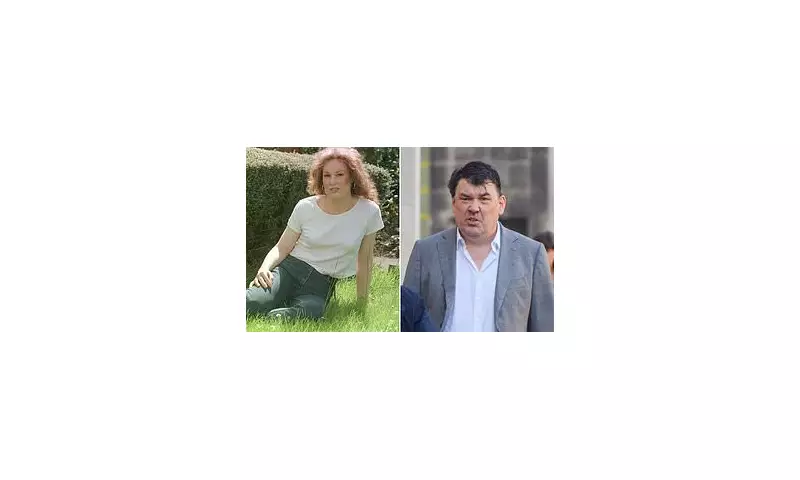
In a dramatic turn of events that has ignited a firestorm on social media, renowned comedy writer and gender-critical campaigner Graham Linehan was arrested in Westminster by a former Metropolitan Police officer who had previously been dismissed for misconduct.
The incident, which unfolded outside the Department for Education, was captured on video and has since gone viral, raising profound questions about policing tactics and freedom of speech in the United Kingdom.
A Confrontation Captured on Camera
Linehan, the celebrated creator of iconic British sitcoms like Father Ted and The IT Crowd, was live-streaming a protest against the teaching of gender identity in schools when the situation escalated. The footage shows him being approached by the ex-officer, who identified himself as a 'community safety warden'.
The individual in question was confirmed to be a disgraced former PC, dismissed from the Metropolitan Police for gross misconduct. His involvement in a public arrest has sparked outrage and demands for an official inquiry.
The Fallout and Public Reaction
The arrest has drawn sharp criticism from free speech advocates and public figures alike. Critics are labelling the incident a grotesque misuse of power and a chilling effect on peaceful protest. Many are questioning how a sacked officer was permitted to perform duties that mirror those of active police personnel.
Linehan was subsequently released under investigation. The Metropolitan Police have issued a statement confirming they are reviewing the circumstances surrounding the arrest, including the involvement of the former officer.
A Broader Debate on Policing and Free Speech
This incident sits at the heart of the UK's ongoing, heated debate surrounding gender identity, women's rights, and the limits of free speech. Linehan's arrest is seen by his supporters not as an isolated event, but as a symptom of a wider conflict playing out across British institutions.
As the review continues, this case promises to fuel further discussion on police accountability, the rights of campaigners, and the very definition of acceptable public discourse in modern Britain.





